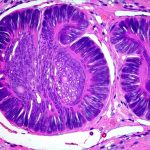The modern world often prioritizes relentless productivity, achievement, and external validation. This constant drive can inadvertently lead to a lifestyle characterized by chronic stress, sleep deprivation, and a suppression of natural reward pathways within the brain—essentially, low-dopamine living. While seemingly focused on ‘getting things done,’ this state fundamentally alters our physiological baseline, impacting systems far beyond mental wellbeing. A surprisingly significant consequence of prolonged dopamine deficiency is disruption to the digestive system, manifesting in a wide range of symptoms from bloating and constipation to more serious conditions like Irritable Bowel Syndrome (IBS) and even autoimmune flares. It’s often overlooked because the connection between brain chemistry and gut health isn’t immediately obvious.
The gut-brain axis, however, is a bidirectional communication network that intricately links emotional and cognitive centers in the brain with the function of the digestive system. Dopamine plays a critical role in modulating this axis, influencing motility (the movement of food through the digestive tract), visceral sensitivity (how we perceive gut sensations), and even the composition of our gut microbiome. When dopamine levels are consistently low due to lifestyle factors, this delicate balance is thrown off, resulting in a cascade of digestive issues. This isn’t simply about feeling uncomfortable; it represents a systemic breakdown in how our bodies process nutrients, manage stress, and maintain overall health. Understanding this link is the first step towards restoring both digestive function and a more balanced, fulfilling lifestyle.
The Dopamine-Digestion Connection: A Deep Dive
The relationship between dopamine and digestion isn’t merely correlational—it’s deeply rooted in neurobiology. Dopamine receptors are present not only in the brain but also within the enteric nervous system (ENS), often called the “second brain” because of its complexity and relative autonomy. The ENS directly controls digestive processes, and dopamine is crucial for regulating gut motility – the rhythmic contractions that move food along. Low dopamine levels can slow down these contractions, leading to constipation, bloating, and a feeling of fullness even after small meals. Conversely, in some individuals, it can increase sensitivity, causing diarrhea or urgency. This seemingly paradoxical effect highlights how complex the system is and why individual responses vary so widely.
Furthermore, dopamine influences gastric emptying – the rate at which food leaves the stomach. When dopamine is low, gastric emptying can be delayed, contributing to discomfort, indigestion, and even heartburn. It also impacts pancreatic enzyme secretion, vital for breaking down food. Inadequate enzyme production leads to malabsorption of nutrients, potentially exacerbating deficiencies and further compromising overall health. This diminished enzymatic action doesn’t just affect digestion; it also influences the immune system, as a significant portion of our immunity resides in the gut.
Beyond motility and secretion, dopamine is involved in modulating visceral sensitivity – how acutely we perceive signals from the gut. Low dopamine can heighten this sensitivity, meaning even normal digestive processes like gas production or peristalsis (wave-like muscle contractions) are perceived as painful or uncomfortable. This contributes to symptoms often experienced by individuals with IBS, where heightened sensitivity plays a significant role. Essentially, the brain’s reduced capacity to regulate reward and pleasure pathways translates into a hyper-awareness of bodily functions, turning ordinary digestive events into sources of distress.
Understanding the Root Causes: Low Dopamine Lifestyle Factors
Many aspects of modern living actively contribute to dopamine depletion. Chronic stress is a major culprit – while acute stress can temporarily increase dopamine levels, prolonged stress exhausts the system, eventually leading to deficiency. This is compounded by our reliance on instant gratification and external rewards (social media likes, constant news updates) which provide short-lived dopamine hits but don’t foster lasting neural pathways for intrinsic motivation or satisfaction. Consider these contributing factors:
- Overstimulation from screens and technology
- Lack of meaningful social connection
- Poor sleep quality
- Diets high in processed foods and sugar (these can offer temporary dopamine boosts, followed by crashes)
- Limited exposure to natural light and outdoor activity
- A relentless focus on achievement and productivity without adequate rest or self-care
The result is a vicious cycle: low dopamine leads to digestive problems which increase stress levels, further depleting dopamine. Breaking this cycle requires a conscious effort to incorporate habits that naturally boost dopamine production – engaging in activities we genuinely enjoy, prioritizing sleep, spending time in nature, practicing mindfulness, and cultivating meaningful relationships. It’s about shifting from external validation to intrinsic reward. Recognizing digestive disruption is the first step towards change.
The Role of the Gut Microbiome & Dopamine
The gut microbiome—the vast community of bacteria residing in our digestive tract—is intimately linked to dopamine production and regulation. Certain strains of bacteria can actually synthesize dopamine, contributing directly to overall levels. A healthy, diverse microbiome supports this process, while an imbalanced microbiome (dysbiosis) can reduce dopamine synthesis and disrupt gut-brain communication. This is where the bidirectional nature of the gut-brain axis becomes especially apparent: low dopamine can negatively impact the microbiome, which then further exacerbates dopamine deficiency and digestive issues. Dietary changes, such as eliminating carbs too fast, can impact this delicate balance.
Diet plays a critical role in shaping the microbiome. A diet rich in fiber (from fruits, vegetables, and whole grains) feeds beneficial bacteria, promoting their growth and diversity. Conversely, diets high in processed foods, sugar, and unhealthy fats can foster the growth of harmful bacteria, leading to dysbiosis. Probiotic-rich foods like yogurt, kefir, and fermented vegetables can also help restore balance. Furthermore, chronic stress and inflammation (common consequences of low dopamine living) are detrimental to the microbiome. Addressing these underlying factors is essential for restoring both gut health and dopamine levels. Chronic undereating can also contribute to a compromised microbiome.
Restoring Digestive Function & Dopamine Balance: Practical Steps
Reversing digestive disruption from low-dopamine living requires a multi-faceted approach that addresses both brain chemistry and gut health. There’s no quick fix, but consistent implementation of these strategies can yield significant improvements:
- Prioritize Dopamine Boosting Activities: Identify activities you genuinely enjoy – hobbies, creative pursuits, spending time with loved ones, physical exercise—and make them a regular part of your routine. This isn’t about productivity; it’s about experiencing joy and satisfaction.
- Optimize Sleep Hygiene: Aim for 7-9 hours of quality sleep per night. Create a relaxing bedtime routine, avoid screens before bed, and ensure a dark, quiet sleeping environment. Sleep is when the brain repairs and replenishes dopamine stores.
- Nourish Your Microbiome: Focus on a whole-food diet rich in fiber, probiotics, and prebiotics (foods that feed beneficial bacteria). Consider incorporating fermented foods into your diet.
- Manage Stress Effectively: Practice stress-reducing techniques like mindfulness meditation, deep breathing exercises, yoga, or spending time in nature.
- Hydrate Adequately: Water is essential for digestion and overall health. Aim to drink at least 8 glasses of water per day.
- Consider Gentle Movement: Regular physical activity (even a short walk) can boost dopamine levels and improve gut motility.
These steps aren’t about achieving perfection, but about making small, sustainable changes that gradually restore balance and wellbeing. Remember that the connection between brain chemistry and digestive health is complex, and it may take time to see results. However, by addressing both factors simultaneously, you can significantly improve your digestive function, reduce stress levels, and cultivate a more fulfilling and vibrant life. Digestive upset can often be improved with mindful eating habits. It’s important to understand how unconscious eating contributes to these issues. And finally, don’t underestimate the impact of emotional regulation on gut health and overall wellbeing, or how zero carb protocols can sometimes lead to sensitivity.


















